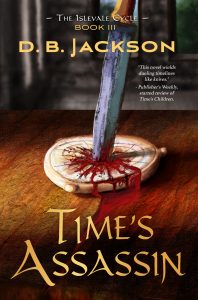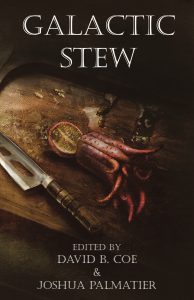One more post about my teaching weekend at the Hampton Roads Writers Conference . . . .
As I believe I mentioned last week, I taught four classes at the event. The topics were: point of view, character development, world building, and pacing/narrative arc. And something I noticed as I spoke at the event — something that had kind of escaped me during my preparation of the talks, probably because I worked on them over several weeks, rather than in a single compressed weekend — was the tremendous amount of overlap among the different subjects.
It makes sense that talks on character and point of view would have a lot in common. In fact, usually I combine the two, especially if I have more time or am teaching over the course of several sessions. But world building? Pacing? As it turns out, yep.
It’s all connected. Storytelling doesn’t care for siloing or creating artificial boundaries among various topics. Our writing is most effective when we accomplish several aims at once, when our character work reinforces our world building, which furthers our narratives, which strengthens our pacing, which ups the tension and sense of conflict, which helps us deepen our characters. And so the cycle goes on.
There is a theory about writing — an old editor of mine referred to it as Vernor’s Rule, because he first heard it from award-winning science fiction author Vernor Vinge (who he also edited). Vernor’s Rule says the following: As writers, what we do can be categorized broadly in three ways — we develop character, we advance our plots, and we fill in background information. Yes, those are broad headings, but he’s essentially right. And according to Vernor’s Rule, at any given moment in our novels, in any given scene, we should be doing at least two, and preferably all three of those things simultaneously. If we’re only doing one, or, God forbid, none of those things, our manuscripts have stalled, and we need to fix the scene in question.
It’s a simple rule, and it fits in with the realization I had at the writers conference. We should strive to do many things at once with our writing, in part because we can do many things at once. Character arc and narrative arc (plotting) work together to build tension in our stories, and ideally we want them to peak at the same time, with our protagonists coming into their “power” (in whatever sense we care to have this happen) at the same time our plots are reaching their zeniths. Keeping our readers apprised of relevant background information is actually quite helpful in tracing character development AND in deepening our world building, which should bear directly on our narratives.
And really, that is the extent of what I had on my mind today. Writing conferences and convention panels and the like function best when we can break down writing into its component parts. Handling the subjects that way simplifies and clarifies. There is absolutely value in concentrating on individual topics — on character and setting and point of view and the rest. The danger is that we will come to think of these things as operating independently of one another. Because they don’t. Yes, by all means, study each one in turn. Learn all there is to learn about them. But then apply all you can learn in such a way as to blend them together, allowing your various story elements to coalesce into something that is far, far greater than the sum of its parts. That’s where the magic happens. That’s where words on a page turn into living breathing people, into places that feel as real as our own world, and into stories that keep us turning the pages deep into the night.
Keep writing.












 This will be the fifth anthology I have edited for ZNB (after
This will be the fifth anthology I have edited for ZNB (after  After running away from social media for six weeks, and ignoring publicity opportunities and the like, I feel a little funny offering any professional advice to anyone on anything. Which, I realize, is entirely wrong-headed.
After running away from social media for six weeks, and ignoring publicity opportunities and the like, I feel a little funny offering any professional advice to anyone on anything. Which, I realize, is entirely wrong-headed. In the end, I hit my deadline. More, the book I wrote that spring, Invasives, the second Radiants novel, turned out better than I ever could have imagined. I love the book, not only because I think it’s good, but because it saved me. It got me through that terrible spring and early summer.
In the end, I hit my deadline. More, the book I wrote that spring, Invasives, the second Radiants novel, turned out better than I ever could have imagined. I love the book, not only because I think it’s good, but because it saved me. It got me through that terrible spring and early summer.